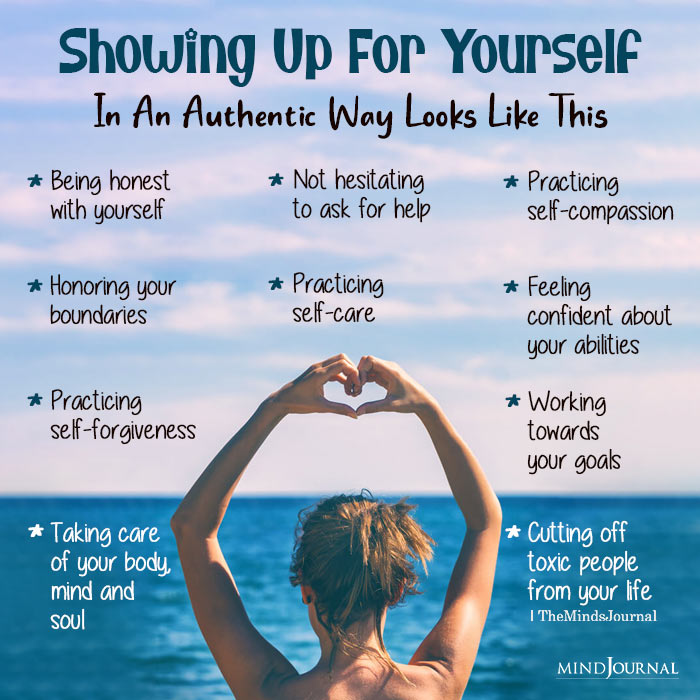Do you love being your authentic self? Many people don’t realize this, but being true to yourself is simple and immensely liberating.
We are often hardwired to behave in a way that others expect us to, rather than who we truly are.
However, when we don’t choose to be our most genuine selves, we experience regret. One of the greatest regrets in life is being what others want you to be, instead of being yourself.
Living an illusion of yourself and later realizing that you could have been better off being just yourself is never a pleasant feeling.
Unfortunately, some people spend half of their lives living in the skin of someone they were supposed to be, rather than being authentic to themselves.
From childhood, we are taught to be the best version of ourselves – to speak, behave, and act the way others expect us to. All of this is done for the sake of social approval, and to maintain a positive image in society.
However, we seldom stop to consider where our inner desires disappear once we conform to society’s expectations. As a result, we bury our true selves under layers of pretense and farce. It is even worse when we don’t realize why we are doing this.
Our intuition might tell us that something is off, that there is a dissonance between what we believe and what we follow, but we ignore it and continue down the path carved by our previous generations.
We compare our accomplishments and achievements to those of others, even in areas that we don’t really care about. This leads us to be happy in other people’s happiness and to compromise our genuine desires.
If you value authenticity and freedom over conformity and approval, then you might find the following ten signs helpful in determining if you are being your true self.
Related: Three Wrong Ways To Love Yourself And How To Do It Right
10 Signs You Are True To Yourself
Here’re the signs that prove that you are being true to yourself and living an authentic life:
1. You stand up for yourself
When you stand up for yourself, you respect yourself, and you respect your personal boundaries. It means you are not allowing anyone to manipulate you or take advantage of you.
You are not afraid to say “no” when necessary, and you don’t compromise your values for the sake of pleasing others.
You are confident and assertive, yet respectful and considerate of others. You are not afraid to stand up for what you believe in, even if it goes against the norm.

2. You undauntedly follow your passion
When you follow your passion, you are doing what you love and what brings you fulfillment. You are not afraid to take risks and step out of your comfort zone to pursue what you truly desire.
You are dedicated and determined, and you don’t let setbacks or failures discourage you. You keep pushing forward and working towards your goals, no matter how challenging they may seem.

3. You take mistakes sportingly
When you take mistakes sportingly, you recognize that failure is a natural part of the learning process. You don’t beat yourself up over every mistake or dwell on them for too long.
Instead, you see them as opportunities to learn and grow. You take responsibility for your actions and use your mistakes as lessons to improve yourself and avoid similar mistakes in the future.
Related: You Have to Love Yourself Before You Love Someone Else – Why It Won’t Work For You?
4. You focus on your own value system instead of conforming to society
When you focus on your own value system, you prioritize your own beliefs and principles over societal expectations or norms.
You don’t let others dictate your choices or influence you to do things that don’t align with your values. You may choose a path that is unconventional, but it’s one that you believe in and that brings you happiness and fulfillment.
5. You freely express your thoughts and feelings
When you freely express your thoughts and feelings, you are honest and open about your emotions and opinions. You don’t hold back or censor yourself to please others.
You are comfortable with being vulnerable and sharing your true self with others. You may face some criticism or disagreement, but you stay true to yourself and your values.
6. You are not influenced by people’s evaluation of who you are
When you are not influenced by people’s evaluation of who you are, you don’t let their opinions define you or affect your self-worth.
You understand that everyone has their own biases and perspectives, and you don’t take their judgments too personally. You stay true to your own beliefs and values, even if they are not popular or accepted by others.
7. You trust your intuition
When you trust your intuition, you listen to your inner voice and follow your gut instincts. You don’t always need external validation or approval to make decisions.
You trust your own judgment and take action based on what feels right for you. You may not always have a logical explanation for your decisions, but you know that they are authentic and true to yourself.
8. You practice self-love and self-care
When you prioritize your own well-being, you take care of yourself physically, mentally, and emotionally. You don’t neglect your own needs or sacrifice your own happiness for the sake of others.
You set healthy boundaries and make time for self-care and self-improvement. You recognize that taking care of yourself is not selfish, but rather a practical necessity.
Related: 12 Self-Care Tips to Take Better Care of Yourself
9. You embrace your uniqueness
When you embrace your uniqueness, you celebrate your individuality and don’t try to fit into a mold. You acknowledge your strengths and weaknesses and accept them as part of who you are.
You don’t compare yourself to others or try to be someone you are not. You are comfortable in your own skin and confident in your own abilities.
10. You have a positive attitude toward life
Having a positive attitude towards life can be a strong indication that you are being true to yourself. When you are aware of your true nature, you accept who you are, including your flaws and imperfections, and you strive to make the best of what you have.
A positive outlook on life often stems from a sense of gratitude and acceptance, which are essential aspects of being authentic.
When you embrace positivity, you are more likely to approach challenges with a growth mindset and see them as opportunities for learning and self-improvement.
Therefore, cultivating a positive attitude towards life can be a powerful way to live in alignment with your true self.
Related: 10 Tips To Let Go and Free Yourself Of Your Painful Past
Being Your Own Best Version

Those were the signs you are authentic and don’t try to project a fake image to fit in. When you enjoy being who you are, you will feel no need to be a copy of someone else.
Rather you will strive to be the best version of yourself. And that’s the biggest sign of an authentic personality!
Related: 10 Things That Happen When You Finally Pull Yourself Together











Leave a Reply